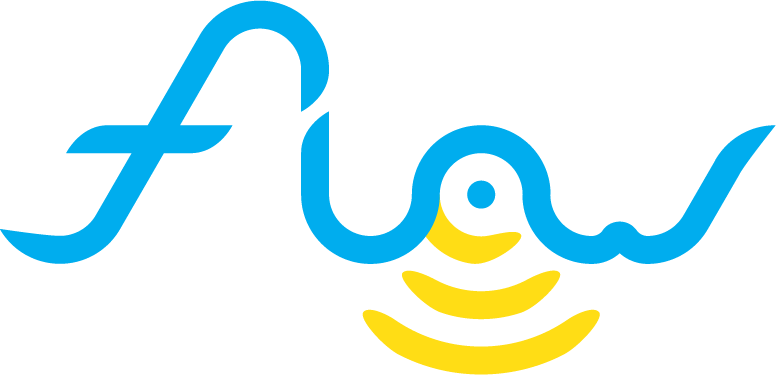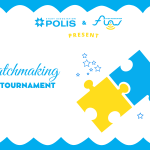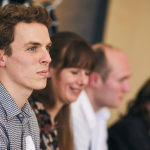Click on the course you want to see reviews of.
Klik op het vak waarvan je de cursusevaluatie wilt lezen.
| Language | English |
| Teacher | Dr. N. Kamoen |
| ECTS | 3 |
| Tentamenvorm | Paper |
It’s a very practical course that teaches you how to beach build a (online) questionnaire. By the time you follow this course, you will probably already have made multiple questionnaire and definitely have filled out a lot, but still you will learn new things during this course. It will teach you best practices on topics like formulation of questions and question order. Also you will learn about factorial analysis in SPSS.
It’s a research skill, so only counts for 3 ECTS. The work load is according to those points. There is no exam, just some assignments which you will complete using feedback from other students.
It’s nice to have some academic reasoning on how to best design a questionnaire. Really helpful for writing your thesis.
Some things you learn are quite obvious or known, especially when you have completed the CIS bachelor and are familiar with Qualtrics and designing questionnaires.
| Voertaal | |
| Docent | |
| ECTS | |
| Tentamenvorm | 2 papers |
Ik had het idee dat de docenten best wel zoekende waren wat geschikt zou zijn voor het vak. Ze leken moeite te hebben met voldoende informatie in een blok te stoppen. Er worden interessante onderwerpen behandeld, maar alles wordt erg kort en beperkt verteld. Er wordt onder andere gepraat over hoe je data kan verzamelen, hoe je deze kunt analyseren en welke privacy regels erbij komen kijken.
De studielast was prima, zeker aangezien er maar 3 studiepunten worden gerekend voor dit vak. Er zijn kleine opdrachten tussendoor die maximaal 2 uur duren en één grote eindopdracht. Het is even zoeken wat je allemaal kunt analyseren, maar zodra je een onderwerp hebt is het goed te halen.
Het vak is best divers en laat goede praktische trucs zien om data te verzamelen en analyseren.
Ik vond het vak soms wat rommelig en niet alle onderwerpen werden even uitgebreid behandeld.
| Voertaal | English | |
| Docent | Dr. J. Bartels, Dr. A.P. Schouten | |
| ECTS | 6 | |
| Tentamenvorm |
|
Social Media @ Work is an interesting course that sheds light on everything that has to do with, surprise surprise, social media at work. On the one hand it’s about using social media for business meetings and collaboration from a distance and all advantages and problems that come with it. On the other hand it handles using social media at work for personal use, a.k.a. cyberloafing, and how social media affects the line between work and private life (i.e. checking e-mail at dinner)
The workload was fine. We had to draw up a research proposal (without conducting the actual research), which counted for 40% of our grade. Furthermore we had to do some pass/fail assignments for the workgroup meetings like give a presentation about what you found when googling your own name.
It was a broad course, including all aspects that had to do with social media and work.
Some theories they explained during this course were already handled in the bachelor program. These explanations felt redundant.
| Language | English |
| Teacher | Dr. R. Cozijn |
| ECTS | 6 |
| Exam form | Paper, practical assignment |
I liked the course, because it was a very practical one. It gave you the chance to gain experience with eye tracking and setting up an eye tracking experiment with a real eye tracker, which might be useful for writing your thesis.
The workload was okay. For each lecture, you had to read some literature or manuals and during half of the lectures you worked on the assignment, in groups of two. Towards the end of the course, we started working on our research report, which was about four pages or so.
The balance between lectures and sessions in the eye tracking lab was quite good. It gave me a nice overview of the broad field of eye tracking research, as far as possible for a 3 ECTS course.
Although it was easy to gather 5 participants for your project, I didn’t really had the idea of setting up a real experiment. However, the process of creating an experiment for 5 participants is a useful experience as well and basically the same as for 100 participants, for example.
| Language | English |
| Teacher | Dr. P. van der Wijst |
| ECTS | 6 |
| Exam form | Written exam, group project, individual project |
The content of this course is exactly what the name suggests, negotiation strategies. The lecturer is really nice and enthusiastic about negotiations. I was not really interested in negotiations, but still found a lot of theory and literature quite interesting. For example, the gender differences in negotiation strategies. The individual assignment in which you have to negotiate with an online program is also quite fun.
The course load was fine. You have to read some literature each week and post some questions on this literature. The group project is just a small presentation which is not that much work. As said, the individual assignemnt in which you have to negotiate via a computer program is quite fun. This negotiation also does not take a lot of time, but the report on this negotiation was quite some work. The exam consists of quite some literature, but is certainly not too much work. Overall, there are quite some small assignments that all do not take too much time.
The lecturer is great and the practical part of the negotiating is really fun to do.
All groups have to present a paper of their chosing, which took all the seminars. Some presentations were quite boring and some papers were somewhat irrelevant. Since these papers were also exam material, this was sometimes quite annoying.
I liked the course, because it was a very practical one. It gave you the chance to gain experience with eye tracking and setting up an eye tracking experiment with a real eye tracker, which might be useful for writing your thesis.
The workload was okay. For each lecture, you had to read some literature or manuals and during half of the lectures you worked on the assignment, in groups of two. Towards the end of the course, we started working on our research report, which was about four pages or so.
The balance between lectures and sessions in the eye tracking lab was quite good. It gave me a nice overview of the broad field of eye tracking research, as far as possible for a 3 ECTS course.
Although it was easy to gather 5 participants for your project, I didn’t really had the idea of setting up a real experiment. However, the process of creating an experiment for 5 participants is a useful experience as well and basically the same as for 100 participants, for example.
| Language | English |
| Teacher | Dr. C.C. Liebrecht, Dr. S.F. van der Land |
| ECTS | 6 |
| Exam | written exam (60%), group assignment (30%), group presentation (10%) |
I liked the course, the theories you learn here are very applicable and interesting. It is a very relevant course since more and more companies use webcare.
Each lecture you had to prepare by doing a small assignment. These were never very hard. The only problem was the group assignment. That really was too much work.
Very practical lectures.
The group assignment for this course was very big and took a lot of time. For the assignment you had to analyse tweets of a company using a monitoring tool. Unfortunately, the tool could not give all the information that was needed for the assignment.






